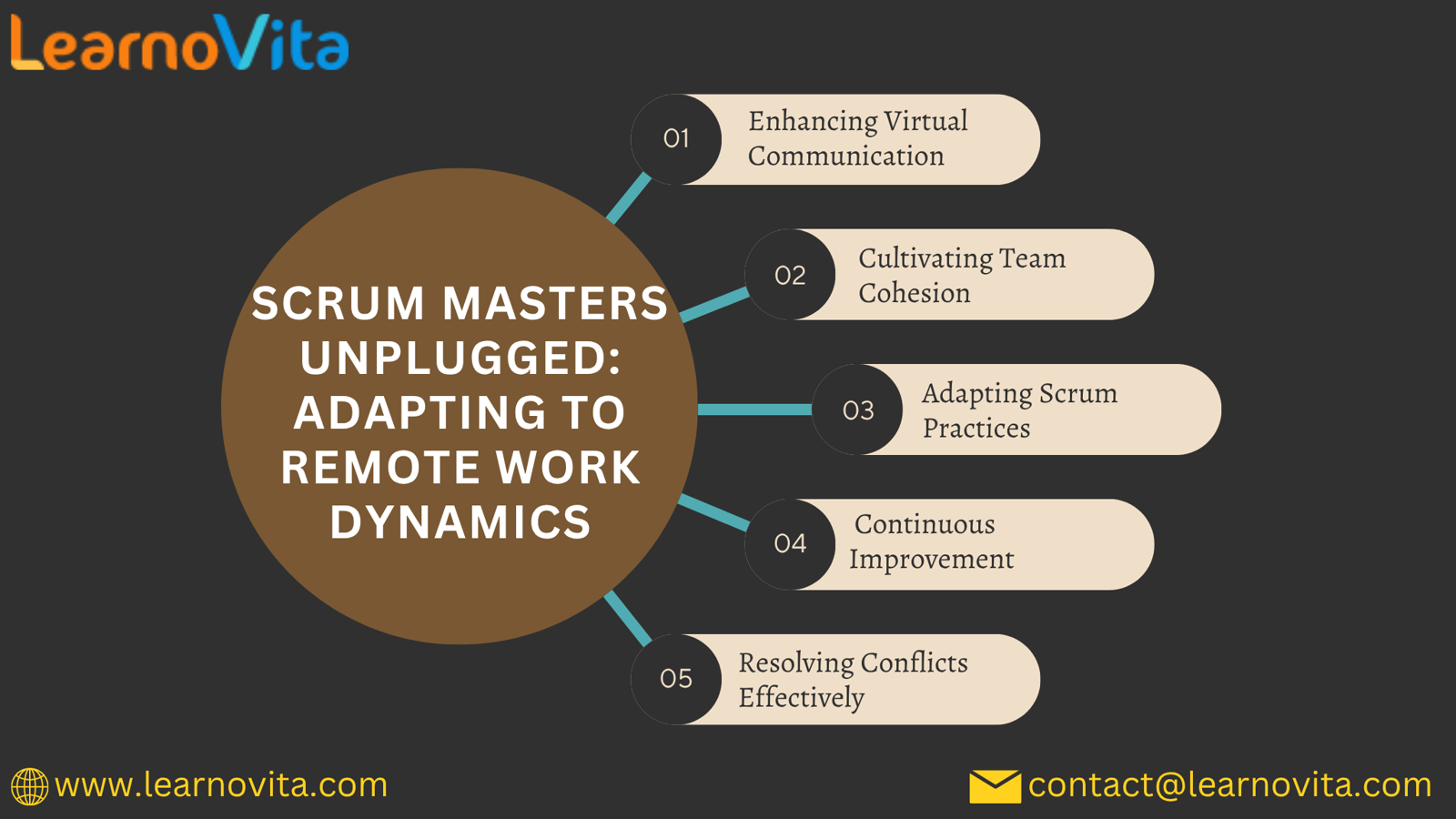The Transformative Role of Scrum Masters in Remote Work Environments
As remote work becomes the standard for many organizations, the responsibilities of Scrum Masters are experiencing a significant transformation. Shifting from in-person interactions to managing virtual teams introduces new challenges and opportunities. In this blog, we’ll delve into how Scrum Masters are evolving to ensure their teams thrive in a digital landscape.
If you want to excel in this career path, then it is recommended that you upgrade your skills and knowledge regularly with the latest Scrum Master Certification Course.

1. Enhancing Communication in Virtual Environments
Effective communication is essential in a remote setting. Scrum Masters must:
-
Become Proficient in Digital Tools: Master platforms like Zoom, Slack, and Trello to maintain team connectivity. Familiarity with these tools is crucial for conducting effective meetings and managing workflows.
-
Encourage Clarity in Messaging: Promoting concise updates ensures that all team members are aligned on project goals and deadlines.
2. Building Team Cohesion
With team members dispersed across various locations, fostering a sense of unity is vital. Scrum Masters can enhance cohesion by:
-
Facilitating Regular Check-Ins: Consistent one-on-one and team meetings help strengthen relationships and provide opportunities for team members to voice concerns and celebrate achievements.
-
Organizing Team-Building Activities: Virtual events, such as online trivia or casual coffee chats, can help create a sense of belonging.
3. Adapting Scrum Methodologies
The Scrum framework needs to be flexible to accommodate remote work. Scrum Masters are responsible for:
-
Revising Scrum Ceremonies: Traditional events, such as sprint reviews and retrospectives, may require adjustments for virtual formats. Utilizing digital whiteboards can enhance participation and engagement.
-
Promoting Asynchronous Collaboration: With varying schedules, Scrum Masters should encourage tools that support asynchronous communication, allowing for flexible interactions.

With the aid of Best Software Training Institute programs, which offer comprehensive training and job placement support to anyone looking to develop their talents, it’s easier to learn this tool and advance your career.
4. Fostering a Culture of Continuous Learning
In a remote environment, Scrum Masters play a crucial role in nurturing a culture of ongoing development:
-
Collecting Feedback: Regularly seeking input from team members helps identify challenges and opportunities for process improvement.
-
Supporting Skill Development: Providing access to online training and resources empowers team members to grow their skills and adapt to new challenges.
5. Effectively Resolving Conflicts
Remote work can lead to misunderstandings and conflicts. Scrum Masters must be proactive in:
-
Mediating Issues: Addressing conflicts promptly and facilitating constructive discussions can prevent escalation.
-
Creating a Supportive Team Environment: Promoting a growth mindset and emphasizing collaboration helps reduce stress and fosters a positive atmosphere.
Conclusion
The shift to remote work has fundamentally changed the role of Scrum Masters. By enhancing communication, building team cohesion, and fostering continuous learning, they can help their teams remain productive and engaged.
As we navigate this new reality, embracing flexibility and innovation will be essential for success in a digital workplace. Scrum Masters are not just facilitators; they are vital leaders guiding their teams through the evolving challenges of remote work.
- Questions and Answers
- Opinion
- Motivational and Inspiring Story
- Technology
- Live and Let live
- Focus
- Geopolitics
- Military-Arms/Equipment
- Security
- Economy
- Beasts of Nations
- Machine Tools-The “Mother Industry”
- Art
- Causes
- Crafts
- Dance
- Drinks
- Film/Movie
- Fitness
- Food
- Games
- Gardening
- Health
- Home
- Literature
- Music
- Networking
- Other
- Party
- Religion
- Shopping
- Sports
- Theater
- Health and Wellness
- News
- Culture

